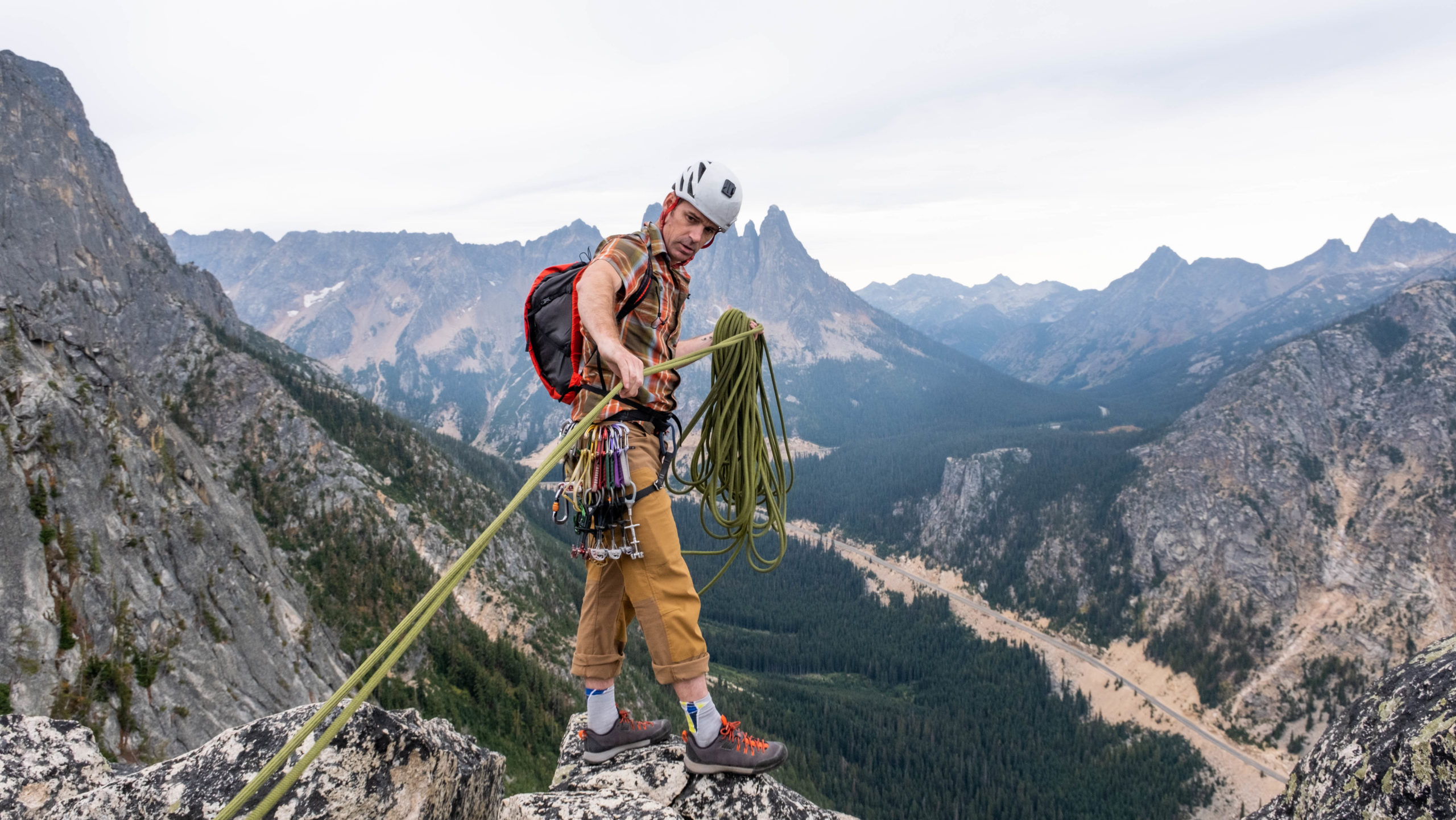SHARE
This post was originally published on Oars + Alps.
Although I’m a professional climber, I’ve found that we don’t need to scale a mountain to experience the mental health benefits of adventure. In fact, you can create adventure from right where you are.

“It’s no secret that being in nature supports our health and well-being: mental and physical. But are all experiences created equal? Does a walk in an urban park create the same experience as a massive expedition to points unknown? Yes. And no.
Adventure offers an opportunity to focus our attention on a singular objective for a fixed amount of time. The combination of these two variables, along with an experience of novelty and challenge just beyond our comfort zone, creates the perfect Venn diagram for a flow state experience. The sense of adventure is really just a gift of time: time slowed down without distraction to allow focus on a single goal.
Now, the flow state is what opens us up and creates a sense of peace. This is a mental boost all its own. However, it isn’t the only medicine we receive from adventuring. Adventure is unapologetic and direct in its feedback. There is no hiding from the experience which means there is no hiding from YOU—adventure mirrors us, our attitude, our perspective on the world, how we handle uncertainty, our ability to shift perspective and to dig deep into the reserves of perseverance. And this is nothing new.”

“Programs aimed at adventuring as a means to boost mental health dates all the way back to 1941, when Kurt Hahn founded a program called Outward Bound in Wales. Hahn proposed Outward Bound as a way to combat perceived social ills resulting from industrialization, such as the decline of fitness, initiative, the spirit of enterprise, and self-discipline. Originally aimed at teaching seamanship to young sailors recruited into the merchant marine during wartime, today Outward Bound operates various forms of the expedition, from backpacking and mountaineering to canoeing and dog-sledding. A motto specific to their founders is that they “train through, not for” and it is through adventuring that we find gifts and wisdom.
The combination of that flow state created in the wilderness and the deep self-knowledge that results from immediacy and uncertainty creates a benefit that is simply unquantifiable.”

These are just a few ways that I have seen adventuring positively impact people’s lives, mine included:
Deeper Awareness of Emotions
Because this is an experiential undertaking, adventuring is immersive—you will experience thoughts and emotions that you might never have faced. It can help you process these emotions, give you better control over them, and help you understand yourself better.
Strengthening of Relationships
Adventuring involves others, whether it’s you and a guide or you and a group of ten, it requires teamwork, communication, and cooperation—all requirements for healthy relating in all areas of life.
Creating (or Repairing) a Sense of Responsibility
Survival skills and responsibility are nearly interchangeable in their application. You can’t have one without the other and adventuring will undoubtedly renew your relationship to commitment and consistency.
Cultivating Confidence
Adventure expeditions involve overcoming everything from physical challenges to negative thoughts and beliefs. As you meet the inner experience of your adventures and you succeed through the outer experiences, your self-esteem is strengthened and the result is increased confidence.
Erasing Negativity
Negative perspectives won’t get you anywhere in the wilderness and a key to any successful adventure is a sustained focus on solutions and positive outcomes. This helps to replace negative loops we may be stuck in and reinforces an outlook that is optimistic.
Improved Health and Fitness
This is probably the most obvious benefit but it is a benefit nonetheless. Being physically active, spending time in nature, and having limited access to electronics can not only improve your physical well-being but pays in mental well-being dividends as well.
I have experienced all of the above and more. No matter the shape adventure takes in my life because let’s be real, we can’t all take 14 days off to scale a mountain.”

“Defining and experiencing adventure has shifted for me throughout my life. As I have grown and taken on different roles and responsibilities—father, entrepreneur, and partner—my relationship with adventure has changed as well. Sometimes it is big and expansive, other times it’s micro and disciplined. For example, an adventure can look like a three-day weekend without an agenda, opening me to possibilities and the unknown. When my life is full of work and family, adventure is a little more prescribed and scripted like scheduling time to go on a quick hike in between meetings and commitments.
What I can say is that the times in my life that have felt the most disjointed and disconnected have been the times when I have strived to have a specific type of adventure experience that is at odds with my present life demands. As a father with young children, taking copious amounts of time off and traveling without agenda, without responsibility, and rolling the dice is not in the best interest of my family or myself. In this way, adventure requires us to get real about who and where we are. I am not in the season of a carefree, 20-something vagabond, and trying to have that experience will result in an unsurprising outcome: unhappiness.
My life today is different and my choices have created real and significant responsibility. As a result of my current reality, my adventure experiences reflect that choice. Peace, freedom, and the ability to be present and soak in the experience all come easily when this is acknowledged and celebrated. Meet the moment, acknowledge the responsibilities and demands, and create adventure from right where you are. From who you are, in this moment.”
